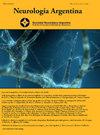Retraso diagnóstico de esclerosis múltiple y sus factores asociados en los pacientes del Hospital Córdoba. Desafíos en la identificación precoz de la enfermedad en un centro de referencia
Q4 Medicine
引用次数: 0
Abstract
Multiple sclerosis (MS) is a chronic autoimmune disease of the central nervous system and the leading cause of non-traumatic neurological disability in young adults. An early diagnosis is crucial for initiating disease-modifying treatments and preventing the progression of disability. However, multiple factors can delay diagnosis and treatment initiation. The objective of this study was to identify these factors and their impact on time to diagnosis and treatment in a cohort of patients at Hospital Córdoba. The researchers conducted a cross-sectional observational study of 153 adult patients diagnosed with multiple sclerosis according to the 2017 McDonald criteria. Their clinical and demographic data were collected and analyzed using logistic regression to determine the factors associated with an early versus late diagnosis or early versus late treatment initiation. The median times to diagnosis and treatment initiation were 95 and 184 days, respectively. Factors such as clinical onset with optic neuritis, diplopia, or motor symptoms were associated with an early diagnosis. In contrast, lack of health insurance, delays in test authorization, and delays in medication dispensing were relevant factors in late treatment initiation, though not statistically significant. Delaying consultation with a specialist was a significant predictor of late treatment initiation. This study highlights the frequency of late diagnosis of multiple sclerosis at Hospital Córdoba, which impacts the progression of disability. Specific clinical factors can favor early diagnosis, while barriers to access and delays in care can complicate the timely initiation of treatment. Improving health education and access to diagnostic resources for vulnerable populations could reduce these delays and improve patient outcomes.
Cordoba医院患者多发性硬化症及其相关因素的诊断延迟。在转诊中心早期发现疾病的挑战
多发性硬化症(MS)是一种中枢神经系统的慢性自身免疫性疾病,是年轻人非创伤性神经功能障碍的主要原因。早期诊断对于启动改善疾病的治疗和防止残疾的进展至关重要。然而,多种因素可延迟诊断和治疗的开始。本研究的目的是在Córdoba医院的一组患者中确定这些因素及其对诊断和治疗时间的影响。研究人员对153名根据2017年麦当劳标准诊断为多发性硬化症的成年患者进行了横断面观察研究。收集他们的临床和人口统计数据,并使用逻辑回归分析,以确定早期与晚期诊断或早期与晚期治疗开始相关的因素。到诊断和开始治疗的中位时间分别为95天和184天。诸如视神经炎、复视或运动症状的临床发病等因素与早期诊断有关。相比之下,缺乏健康保险、测试授权延迟和药物分配延迟是延迟治疗开始的相关因素,尽管没有统计学意义。延迟咨询专家是延迟治疗开始的重要预测因素。本研究强调了多发性硬化症在医院Córdoba的晚期诊断频率,这影响了残疾的进展。特定的临床因素有利于早期诊断,而获得护理的障碍和延误可能使及时开始治疗复杂化。改善弱势群体的健康教育和获得诊断资源的机会可以减少这些延误并改善患者的预后。
本文章由计算机程序翻译,如有差异,请以英文原文为准。
求助全文
约1分钟内获得全文
求助全文
来源期刊

Neurologia Argentina
Medicine-Neurology (clinical)
CiteScore
0.50
自引率
0.00%
发文量
34
期刊介绍:
Neurología Argentina es la publicación oficial de la Sociedad Neurológica Argentina. Todos los artículos, publicados en español, son sometidos a un proceso de revisión sobre ciego por pares con la finalidad de ofrecer información original, relevante y de alta calidad que abarca todos los aspectos de la Neurología y la Neurociencia.
 求助内容:
求助内容: 应助结果提醒方式:
应助结果提醒方式:


